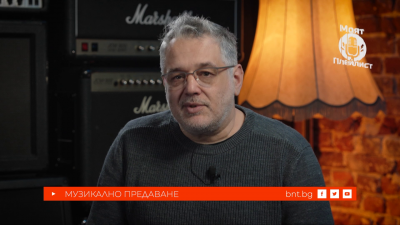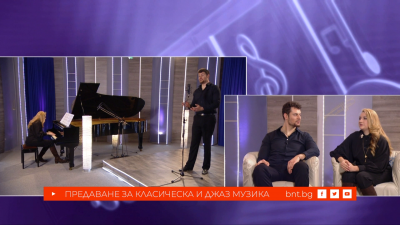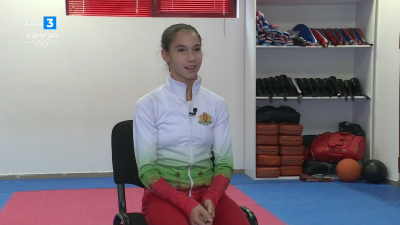Bulgaria can join the euro area if it brings down inflation

GERB-UDF leader, Boyko Borissov, warned Bulgarians to prepare for tax hikes.
Outgoing Finance Minister, Assen Vassilev, assured that the government has no intention to do so. The reason for their words was the IMF's recommendation to abolish the flat tax and to return 20% VAT rate.
Bulgaria could join the eurozone in 2025 if it brings down inflation, said Eurogroup President, Paschal Donohoe, who is visiting Bulgaria on March 15. The outgoing finance minister is optimistic that the country will meet this requirement.
Efforts to tackle inflation are key for Bulgaria, Paschal Donohoe stressed, but assured that even if Bulgaria does not meet the criterion by the summer, when the ECB's inspection is due, this will not stop the process.
"The Bulgarian government can decide whether to ask for a further assessment. I believe that joining the eurozone is very likely. For me the question is when, not if, Bulgaria will join the euro area. Yes, I think Bulgaria can adopt the euro in 2025 and all the work is focused on containing inflation," said Eurogroup President Paschal Donohoe.
The Finance Minister is optimistic that this benchmark can be achieved.
"In January and February, we are below the reference value – i.e., it is a matter of time, if this is maintained, for the average annual inflation to fall," said outgoing Finance Minister Assen Vassilev.
Bulgaria will for the second time in its history participate in controlling, using and operating in a globally recognised currency. The last time this happened in Bulgarian history was during the reign of Tsar Ivan Asen II, when Pope Innocent, in 1230, gave us the right to mint Roman coins.
Outgoing Deputy Prime Minister Gabriel reaffirmed the timeframe set for the adoption of the single currency.
"The ambition remains to join the Eurozone in 2025," said Mariya Gabriel.
Outgoing Prime Minister Denkov, stressed the role of the Eurogroup President in the accession process.
"The Eurogroup President Paschal Donohoe, with whom negotiations have been taking place in recent months, is responsible for how Bulgaria moves in terms of joining the Eurozone. He is also part of the team that is preparing the necessary decisions to be taken in the coming months regarding this topic," said Nikolai Denkov, outgoing Prime Minister.
Pascal Donahue and Assen Vassilev took part in a forum dedicated to the euro, where BNB Governor Dimitar Radev explained that besides the benefits Bulgaria will also have a serious contribution in the currency union.
"Bulgaria has maintained a very disciplined fiscal policy for more than a quarter of a century. The result is obvious. Debt to GDP, which is the second lowest in the EU. If we continue on this path, after accession, the Eurozone will gain another voice of common sense in terms of not solving the fiscal issues that the Eurozone and the whole EU is facing", explained Dimitar Radev, Governor of the BNB.
Paschal Donohoe and Assen Vassilev participated in a forum dedicated to the euro, at which BNB Governor Dimitar Radev explained that besides the benefits Bulgaria will have a serious contribution to the currency union.
"Bulgaria has maintained a very disciplined fiscal policy for more than a quarter of a century. The result is obvious. Debt to GDP, which is the second lowest in the EU. If we continue on this path, after accession, the Eurozone will gain another voice of common sense in terms of solving the fiscal issues that the Eurozone and the whole EU is facing", explained Dimitar Radev. Governor of the central bank.
Earlier today, GERB leader Boyko Borissov criticised the cabinet's fiscal policy, citing an IMF analysis presented yesterday in a budget committee, recommending abolishing the flat tax and replacing it with a progressive one and returning the 20% VAT rate where it has been reduced.
"There are many conclusions in it, but the most important one is the one I warned you about. Bulgarians should prepare for tax hikes," GERB leader Boyko Borissov said.
Vassilev denied.
"The IMF has been talking about raising taxes for the past 20 years. We have no intention to raise taxes. VAT is back to the 20% rate, except for the restaurants sector, which as you know the Ministry of Finance also recommends return to the 20% rate," confirmed Assen Vassilev.
He reminded that at the end of the year, the restaurateurs return to the higher VAT rate.
Get the latest news wherever you are!
Follow us on
Facebook
and
Instagram
Follow BNT’s YouTube channel
You can now also watch us on
TikTok
Find us on
Google News























